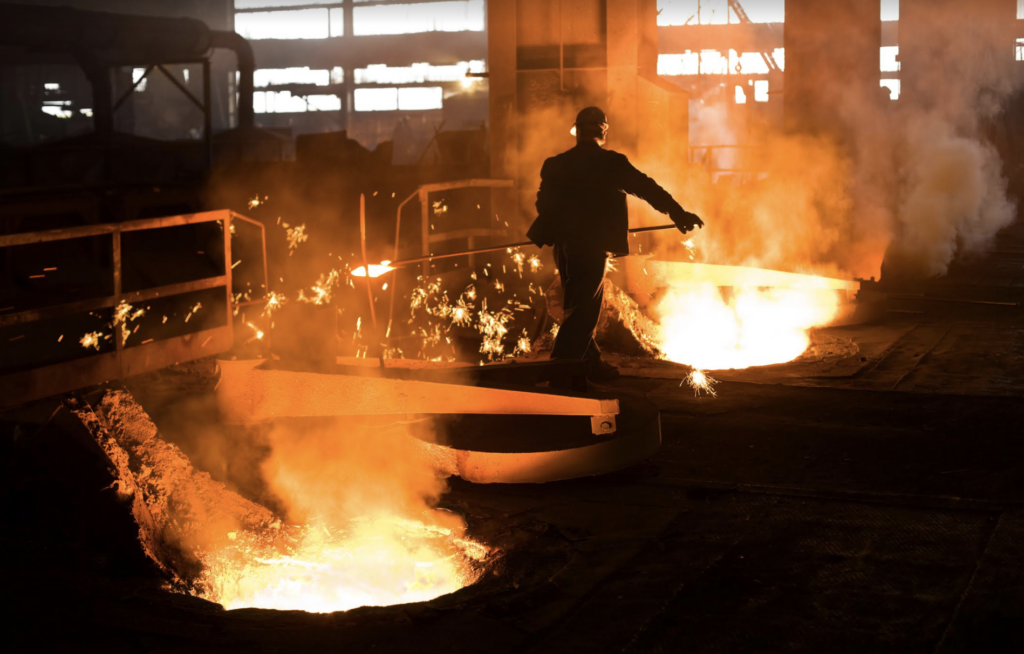What is Non-Hodgkin’s Lymphoma?
Non-Hodgkin’s Lymphoma is a term that can be used for many different kinds of lymphoma that all share the same characteristics. Non-Hodgkin’s Lymphoma affects the white blood cells, (lymphocytes) which impact their ability to fight off infections and other germs that may enter the body. This condition occurs in an individual’s lymphatic system, which could mean the lymph nodes, spleen, bone marrow, tonsils, or digestive tract.

According to Cancer Treatment Centers of America, there are more than 30 types of Non-Hodgkin’s Lymphoma, classified by the kind of lymphocyte involved in the cancer, as well as the aggressive nature of the cancer. Types of Non-Hodgkin’s Lymphoma include diffuse B-cell lymphoma, peripheral t-cell lymphoma, small-cell lymphocytic lymphoma, and anaplastic large-cell lymphoma, among others.
Causes and Risk Factors for Non-Hodgkin’s Lymphoma
Exposures to certain chemicals like benzene, herbicides, chemotherapy drugs, and other substances have been known to increase one’s chances of being diagnosed with Non-Hodgkin’s Lymphoma. Other risk factors for getting Non-Hodgkin’s Lymphoma include family history, having a weakened immune system, older age, and certain racial backgrounds. (Whites are more likely than African Americans and Asian Americans to develop Non-Hodgkin’s Lymphoma).
Non-Hodgkin’s Lymphoma and Workplace Exposures
Exposure to benzene is one of the most common risk factors associated with Non-Hodgkin’s Lymphoma. Benzene is a component of petroleum products including diesel fuel and gasoline and is often found in products like plastics, degreasers, solvents, lubricants, pesticides, rubbers, dyes, resins, and nylons. Individuals with long-term exposures to diesel exhaust, such as locomotive engineers and machinists, are at elevated risk for Non-Hodgkin’s Lymphoma due to those exposures.
Other Causes of Non-Hodgkin’s Lymphoma
Beyond benzene and diesel, there are other substances in the workplace that increase one’s risk of Non-Hodgkin’s Lymphoma. These substances include herbicides, pesticides, and cadmium.
Monsanto’s very popular weed killer Roundup contains glyphosate, which is now known to contribute to Non-Hodgkin’s Lymphoma. There have been several large verdicts recently in which individuals diagnosed with Non-Hodgkin’s Lymphoma recovered millions of dollars from Monsanto or its parent company, Bayer. These verdicts were based on the fact that the plaintiffs’ Non-Hodgkin’s Lymphoma were caused by significant exposures to Roundup.
Epidemiology studies indicate that the trades and industries who are at elevated risk for Non-Hodgkin’s Lymphoma include farmers, firefighters, railroad workers, machinists, rubber production, fuel distribution, oilfield/refinery workers, mechanics, printers/pressmen, leather production, paper production and chemical workers.
Workers who are at elevated risk for Non-Hodgkin’s Lymphoma via cadmium exposures include those working in electroplating, electronic recycling, welders, paint manufacturing, ceramics, battery manufacturing, silver soldering and manufacturers of solar cells. Cadmium is used in alkaline batteries, pigments, coatings, plastics and platings.

The medical causation analysis in these cases is often complicated. An attorney at Hughes Law Offices will always perform a very thorough intake in order to determine which exposures and workplaces could have contributed to a claimant’s Non-Hodgkin’s Lymphoma.
Importance of Non-Hodgkin’s Lymphoma Screenings
According to the American Cancer Society, there are currently no widely recommended screening tests to diagnose Non-Hodgkin’s Lymphoma before symptoms occur. However, paying attention to certain symptoms and signs may allow doctors to detect and treat a Non-Hodgkin’s Lymphoma diagnosis early.
Symptoms of Non-Hodgkin’s Lymphoma often start with the enlargement of one or more lymph nodes, usually in the side of the neck, in the armpit, or in the groin. If swollen lymph nodes do not occur, other symptoms to look for include fever, weight loss, fatigue, chills, and swelling in the abdomen. (American Cancer Society)
When presented with symptoms of Non-Hodgkin’s Lymphoma, you should seek medical attention right away. In order to test for this condition, doctors may use a physical examination, biopsies, or other lab tests including imaging tests, x-rays, MRIs, or ultrasounds. Treatment for diagnosed Non-Hodgkin’s Lymphoma depends on the severity of the cancer, the location of the cancer, and an individual’s preferences. Options for treatment include chemotherapy, immunotherapy, targeted drugs, radiation, stem cell transplants, and surgery.
Contact a Railroad Cancer Lawyer
If you believe you are suffering from Non-Hodgkin’s Lymphoma due to exposures on the railroad, our team at Hughes Law Offices can fight on your behalf. Contact us today to get started.
Non-Hodgkin’s Lymphoma cases
$950,000 settlement – 38-year-old trackman employed by New Jersey Transit was diagnosed with stage 4 Non-Hodgkin’s Lymphoma. He alleged that his exposure to carcinogens in his workplace, including diesel exhaust, creosote, calcium chloride, herbicides, and pesticides, were the cause of his cancer. The court determined that his employer failed to provide proper equipment or air quality testing to mitigate the issue.
$10,000,000 verdict – 70-year-old plaintiff used the herbicide Roundup to control weeds and poison oak on his property. After being diagnosed with large B-cell non-Hodgkin’s lymphoma, it was determined that his diagnosis was caused by his exposure to the carcinogens in the product that were not disclosed.
$90,000 settlement – plaintiff brought a case against her late husband’s previous employers for his exposure to pressroom chemicals containing benzene. The plaintiff’s husband had worked in printing companies for 33 years before he was diagnosed with Non-Hodgkin’s Lymphoma, which eventually took his life.

